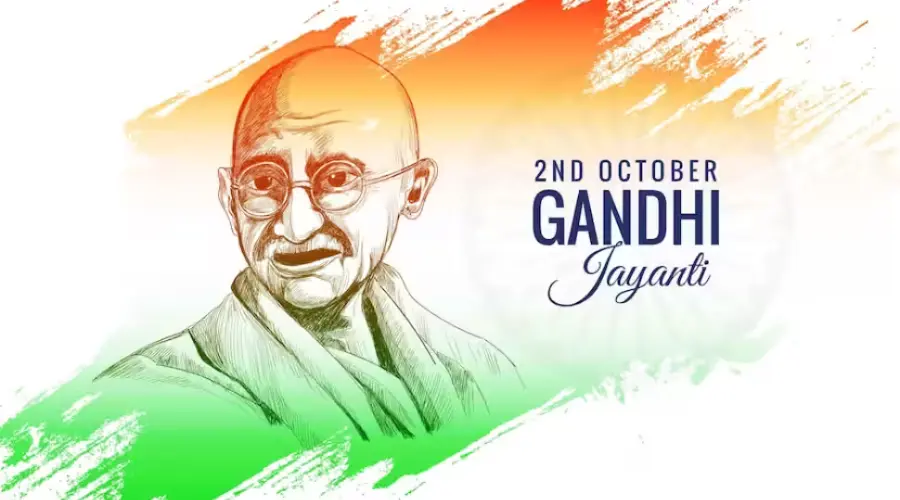When is Gandhi Jayanti?
When is Gandhi Jayanti?
Gandhi Jayanti is celebrated on 2nd October every year to mark the birth anniversary of Mohandas Karamchand Gandhi, famously known as Mahatma Gandhi.
Father of the Nation, as he was called, led India’s freedom movement along with many other national leaders against British rule in India. His method of non-violence inspired many civil rights movements across the world. 2nd October is celebrated every year as a national holiday to celebrate his contribution to the nation. The day is also celebrated as the International Day of Non-Violence by the United Nations.
Who was Mahatma Gandhi?
Born on 2nd October 1869, Mohandas Karamchand Gandhi was India’s tallest leader of the independence movement. He successfully led India’s non-violent movement against the British, which in turn inspired many civil rights movements across the world.
Gandhi had studied law and he went to South Africa to represent a client. Upon return, he joined the Indian National Congress and led nationwide campaigns for farmers, peasants, and laborers. He also fought against caste discrimination and fought for expanding women’s rights.
He led some of the most historic movements in India’s freedom struggle. He led Indians to break the salt law, through the Dandi March in 1930, which helped Indians believe that they could challenge the might of the British. He also led the Quit India movement in 1942.
Mahatma Gandhi believed in religious pluralism. He wanted India to be a secular nation and he fought to make it a reality. But his vision was hindered by Muslim nationalists led by the Muslim League on one side and the Hindu Mahasabha and the Rashtriya Swayam Sevak on the other side leading the Hindu nationalists. Gandhi, who opposed the Partition, could not prevent the partition of India into a Hindu-majority India and Muslim-majority Pakistan.
Hindu nationalist Nathu Ram Godse killed Gandhi on January 30, 1948.
Non-Violence and Mahatma Gandhi
Nonviolence means non-participation in the use of physical force to achieve an aim. For some, the philosophy of nonviolence is rooted in the simple belief that God is harmless. Lord Mahavira, was the torch-bearer of "ahimsa" and introduced the word to the world and applied the concept in his own life. Nonviolence also has believers who accept the need for nonviolence as a means to achieve political and social change. According to them, nonviolence is a philosophy, a principle, and a practice.
Celebration at Raj Ghat
Gandhi Jayanti is celebrated as a national holiday. Prayer meetings are held to pay homage, in front of the statue at the Raj Ghat in New Delhi. The President and Prime Minister of India are present during the prayer at the memorial of Mahatma Gandhi where he was cremated. His most preferred and devotional song Raghupati Raghava Raja Ram is sung in his memory.
Celebration in Schools
Various events are organized by the schools in India to celebrate the Gandhi Jayanti on the 2nd of October every year. Students of schools enthusiastically take part in the Gandhi Jayanti event celebrations. Students sing a song based on the truth and non-violence message of Bapu. They recite poems and present their sights on Gandhian philosophy. Small children celebrate this event by dressing up the same as the Gandhi Ji as well as performing nationalistic songs. Students also take part in the rally using banners that convey the significance of peace and non-violence throughout the country.
Celebration by a common man in India
People perform prayer services, memorial ceremonies, and homage all over India. Exhibitions of art, science, and competitions of essays were held. Awards presentations take place to promote the living of non-violent life. People in many places sing the famous devotional song of the Bapu “Raghupati Raghava Raja Ram”. Garlands of beautiful flowers are placed on the statues of Mahatma Gandhi all through India by the people. Some people avoid eating meat and alcohol on this day.
Contribution of Gandhi’s Ideology to the World
Several developments are taking place all over the world indicating a growing interest in a non-violent alternative to present their opinion. People who are involved in these developments are well aware of Mahatma Gandhi's name and his philosophy. On the other hand, they are promoting the values and principles he stood for.
Message on Gandhi Jayanti
Mahatma Gandhi’s contribution towards bringing peace and non-violence to this world is unparalleled. His teachings must be promoted to resolve current conflicts, avoid violence, and find a peaceful solution to every small or big problem to make this world a better place to live in.


Comments (0)